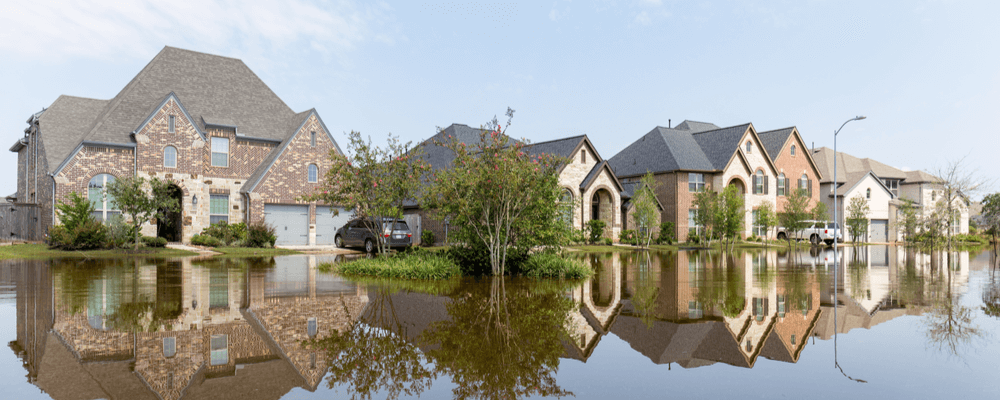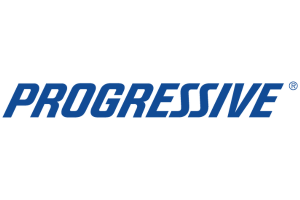
Recent state flood warnings remind me of when my Newburyport, Massachusetts home’s newly remodeled basement flooded after a similar period of heavy rain. Since our homeowners insurance policy at the time didn’t include flood coverage, I prepared to pay for all of the damage.
In a stroke of luck, the insurance adjusters who inspected our property noted that the basement’s sump pump, designed to prevent water accumulation, had failed. This allowed the insurance company to categorize the damage as the result of a mechanical failure rather than a flood. Insurance covered the damage.
Not everyone is that lucky, though. If you experience flooding in your home as a result of severe weather, your homeowners insurance policy most likely won't cover the damage. It may be covered under a separate flood insurance policy.
You're probably wondering "Do I need flood insurance?" This article takes a look at flood insurance in the United States and will help you determine if you need to buy flood insurance.
Before you learn about flood insurance, you should check on your homeowners insurance. Enter your ZIP code into our free online quote comparison tool below to the best rates for your area and coverage personalized for your insurance needs.
Save Money by Comparing Insurance Quotes
Compare Free Insurance Quotes Instantly
Secured with SHA-256 Encryption
About Flood Insurance in the United States
On average, the single most devastating property loss faced by homeowners in America is not from fire, tornado, or earthquake, but from flooding.
While this disaster occurs in all 50 states, flood damage caused by water accumulation from outside of the home is excluded under standard homeowners insurance policies. Homeowners must buy flood insurance available through the National Flood Insurance Program (NFIP) and backed by the U.S. Treasury, or from a select few private insurers.
Despite being federally subsidized and relatively inexpensive for the coverage provided, flood insurance is not a popular, voluntary purchase by homeowners when buying a home. The reasons are understandable. As a home buyer, you face myriad closing costs and escrow requirements, so an extra $400 to $500 or more annually is easy to decline.
For existing homeowners, NFIP flood insurance may be added at any time, but there’s a waiting period for coverage. Flood insurance isn’t effective for thirty days after you purchase a policy and it also isn’t effective on a flood already in progress when you purchase it.
You should never wait until a flood is actively threatening your property before you buy flood insurance because it may be too late to receive coverage. Make sure you take the proper steps before a hurricane hits your area, or large storm, by reviewing your insurance coverage.
What many homeowners don't realize is that the average cost of flood insurance can be reduced with higher deductible policies that still cover major loss in the event of a catastrophic flood.
How do I know if I need flood insurance?
If you live in a FEMA-designated flood zone, you may be required to purchase flood coverage. Flood insurance is mandatory under federally insured programs enforced against the mortgage lender. Depending on the distance from water and structure elevation, mandatory flood insurance can cost upwards of $1,500 to $2,500 or more per year.
Where the situation gets murky is when your property lies outside of a flood zone that has been delineated on a federal map. On average, 20% of flood losses claims occur to homes located in low to moderate flood risk areas. This means that even if you aren't in a high-risk flood zone, you could still experience flooding in your home.
There are numerous reasons for this. Flood maps are frequently out of date. Land development, paving and the loss of natural drainage can all factor into causing non-mapped flood zone properties to flood for the first time.
The worst flooding often results from storms that drop dozens of inches of rain during short time periods. Accumulated flood waters with nowhere to go mix with sewage and ground contaminates.
A single inch of this toxic stew entering your home’s ground floor can require costly remediation as well as the replacement of the home’s contents, including HVAC, furniture, clothing and decorations.
Should I get flood insurance if I'm not in a flood zone?
Savvy insurance agents typically encourage the voluntary purchase of flood insurance for cases where there is a remote possibility of flood loss for property that lies just outside a mapped flood zone.
If you say yes to this voluntary purchase, you can best support your decision by keeping your insurance policy up-to-date. You should ensure that you have accurate descriptions of your home (e.g., square footage, number of rooms, age and materials it’s made from, etc.), including improvements and upgrades such as a remodeled basement, new roof, or HVAC system.
Remember to store your inventory and insurer’s contact info away from your home, possibly in the digital cloud where you can retrieve it easily.
Can I decline flood insurance?
If you decline to buy flood insurance, you may be asked to sign a waiver to confirm flood insurance was offered and declined. The waiver builds a wall of defense for the potentially expensive and oftentimes unproductive litigation in the aftermath of a flood.
If you’re like the majority of U.S. homeowners, your family’s home is your most valuable financial asset. Opting in to voluntarily get flood insurance for a few hundred dollars a year is worth consideration. After my family’s near-miss experience with our flooded basement, I’m glad we did.
Now that you've learned about flood insurance coverage, get quotes for homeowners insurance to see if you can get a better price with better protection. Enter your ZIP code in our free tool below.
Save Money by Comparing Insurance Quotes
Compare Free Insurance Quotes Instantly
Secured with SHA-256 Encryption
The content on this site is offered only as a public service to the web community and does not constitute solicitation or provision of legal advice. This site should not be used as a substitute for obtaining legal advice from an insurance company or an attorney licensed or authorized to practice in your jurisdiction. You should always consult a suitably qualified attorney regarding any specific legal problem or matter. The comments and opinions expressed on this site are of the individual author and may not reflect the opinions of the insurance company or any individual attorney.







